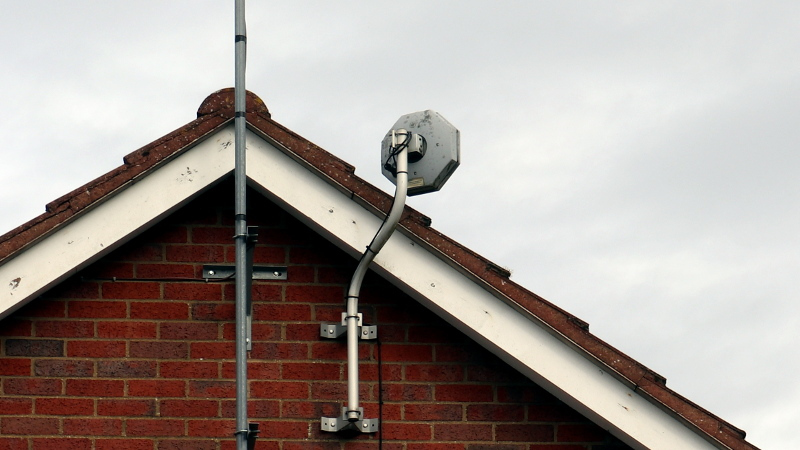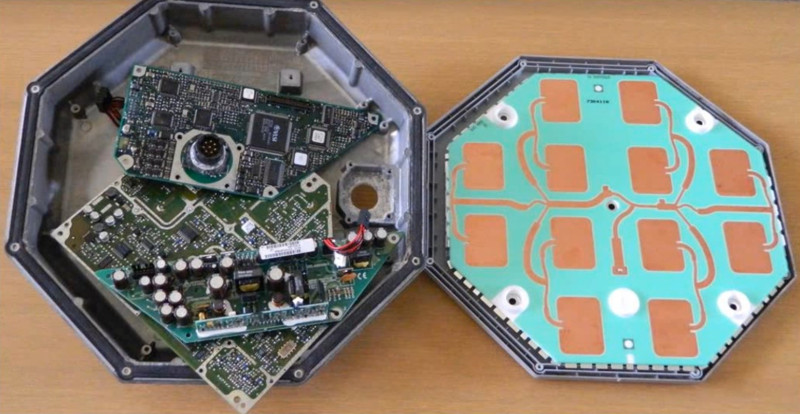
There are many factors that affect the business of telecommunications companies. These are competitors, the financial configuration of the market, and all kinds of crises. Most of the factors can be predicted, but it also happens that a business collapses due to unforeseen obstacles.
It turns out the weather can be an insurmountable problem. This is exactly what happened with Ionica from the UK. She tried to compete with the monopoly British Telecom and even became a pound-based "unicorn", which in the 90s of the last century was a real economic miracle. But the rapid rise in business was replaced by an equally rapid decline.
Ionica? Never heard
Yes, this is not the most famous company now. It is probably remembered only by the telecom market participants who followed the trends at the beginning of the new millennium.
Ionica is a product of the Cambridge Business Incubator, which was active at the time. With its help, many interesting companies appeared in the world that promoted technological innovations. One of them is the protagonist of our article.
At the end of the 20th century , an interesting situation developed in Britain : British Telecom became a monopoly on the telephone market. Almost any landline telephone lines were laid / changed with her knowledge. This situation was not to everyone's liking, since the company's tariffs were almost extortionate.
There were no competitors, all levers were in the hands of the monopolist. But there was a way to get around the monopoly - thanks to wireless communication. It seems like a simple solution now, but at the beginning of the new century, wireless telephony was something of a technological breakthrough. Ionica became his guide.
The company has developed a technology for wireless communication, a kind of analogue of modern cellular. In a certain region, a tower was erected, which provided wireless communication to local residents / organizations. Each building was equipped with microwave radio receivers, to which landline telephones were connected.
The idea was great, and the company immediately had many clients. One of the factors that has led to the popularity of Ionica is its inexpensive fares. They were lower than those of British Telecom, due to the lack of the need to deploy wired infrastructure.
The service was launched in several cities in the UK.
Sounds good, what happened next?
As already mentioned, towers were erected near the houses, which exchanged data with antennas on the houses. And now antennas have become one of the problems. These were very complex technologically and very expensive (as far as can be judged) hi-tech systems. The technology itself is called Wireless local loop (WLL).

This equipment operated in the 3.5 GHz band using custom chips and other elements from Nortel Networks. What is inside can be seen in the photo and in this video.
Now all this can be replaced with a couple of dollar wireless chips with a strap. But then it was a real innovation, and not cheap.
The company began to install its equipment in 1996, and every year it increasingly increased the volume of operations. But, unfortunately, problems appeared almost immediately. The main one is weather conditions. It turned out that in fog, rain, snow, there is almost no connection. The 3.5 GHz spectrum is very sensitive to weather conditions. The company may have tested its towers in ideal conditions, in good weather. In any case, the technology was tested, it is unlikely that someone would spend money on bringing untested systems to the market.
In 1997, the company went public, its shares soared in price, so that Ionica immediately received a capitalization of 1 billion pounds. Here you can see that a billion pounds in the late 90s is not at all like a billion pounds now. Everything seemed to be going perfectly.
But it just so happened that users began to complain - and not just one or two people. Hundreds and thousands of customers were dissatisfied with the service. Someone had to endure communication problems due to the lack of alternatives. Others gave up the service almost immediately. It so happened that some clients from 1996 to 1997 did not receive a normal connection. More or less everything worked only in good weather, which, of course, is not normal.

Typical UK window view. There are also sunny days, but not so often the
Company suffered losses and could hardly keep afloat.
It all ended overnight
By 1998, the company had accumulated a lot of debts. The total amount was 300 million pounds. By August 1998, Ionica had failed to find an investor, and, according to management, it took only 45 million pounds to get out of the crisis.
By the end of the year, the value of the company's shares had dropped by four times, so that the capitalization of Ionica amounted to 250 million pounds, with debts of 300 million.
But then things got even worse. On November 2, the company laid off almost half of its employees. In December 1999, she began to transfer her clients to the service of the same monopolist - British Telecom. The latter also supported the company by keeping the Ionica infrastructure in working order before transferring to its own facilities. On February 28 of the same year, it was all over.
The company began to provide only point services that brought at least some income. By the way, she managed to start work in Canada, where the weather conditions are much better than in the UK. And here the customers were happy, but Ionica had no resources left to expand.
Plus, in the 2000s, ADSL technology began to spread rapidly, which finally buried Ionica's business.
Could it be otherwise?
Yes, it is likely. If the weather hadn't interfered with the company, it would most likely have managed to build a solid base of satisfied customers. Then the company would reduce the cost / simplify the production of equipment, then - switched to new technologies, continuing to support customers. In that case, everything would be fine.
But for this Ionica had to start working in sunny regions of the USA, Europe, Australia, and not in Britain. There is far from a zero chance that now the name of the company would be as famous as British Telecom, Vodafone, Orange, etc. But it turned out how it happened.
